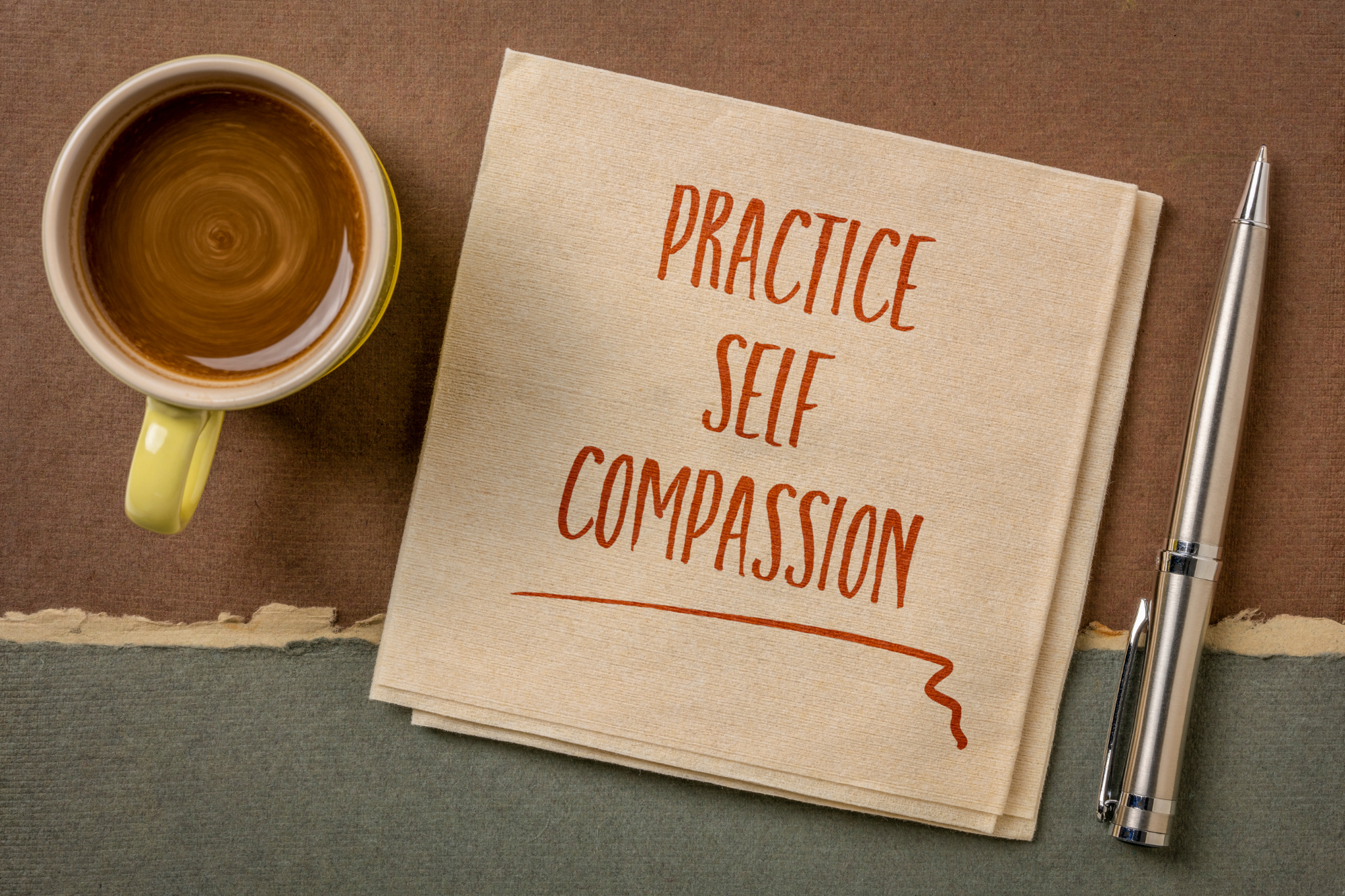
By Shauna Larson
Self-compassion promotes emotional regulation, resilience, and self-validation, enabling us to cope more effectively with stress and adversity. By reducing self-criticism and replacing it with self-kindness, we create a supportive inner environment that fosters personal growth and promotes good mental health. But being kind to ourselves does not come easily and is a struggle many of us face. Many of us believe we need to be hard on ourselves to achieve success or think we don’t deserve kindness because we feel inadequate or unworthy.
Despite the challenges, cultivating self-compassion is crucial for our mental health and well-being. As the saying goes, “The longest journey begins with a single step.” The journey to self-compassion may not be easy, but it’s worth every step.
Understanding Self-Compassion
Dr. Kristin Neff, a well-known self-compassion professor, and researcher at the University of Texas, characterizes self-compassion as showing ourselves the same kindness and concern that we would typically extend to a close friend. Just as we’d recognize a friend’s hardships and suffering, self-compassion means acknowledging our struggles. Similarly, as we would naturally be inclined to comfort a friend in distress, self-compassion encourages us to respond to our emotional needs with generous sympathy and understanding.
Importance of Self-Compassion
Studies suggest a strong correlation between self-compassion and mental health. Those of us who exhibit greater self-compassion tend to experience enhanced emotions such as joy, optimism, interest, and a sense of belonging, while also reporting decreased anxiety, depression, repetitive negative thinking, and fear of failure. By practicing self-compassion, we are better equipped to navigate through life’s adversities, as it promotes resilience and a healthier response to challenges.
Why Self-Compassion Can Be Hard
Even if self-compassion is vital for good mental health, some find it hard to practice daily. Practicing self-compassion can be challenging due to a myriad of factors, such as deeply ingrained societal norms that place a high value on toughness and self-criticism, personal belief systems that equate self-kindness with weakness or self-indulgence, past experiences that have led to feelings of unworthiness, as well as the fear of complacency or appearing selfish. Moreover, we may fear acknowledging our pain might open the floodgates to overwhelming negative emotions.
The unfamiliarity and discomfort often accompanying changing our mindset and behaviors can make self-compassion seem daunting. However, practicing self-compassion is a worthwhile pursuit because of its many benefits.
Cultivating Self-Compassion in Daily Life
Cultivating self-compassion in our daily lives is a vital practice that fosters emotional resilience, mental health, and a positive self-concept. It involves acknowledging our shortcomings, embracing our shared human experience, and treating ourselves kindly. Though it may be challenging in a world that often prizes toughness and constant productivity, integrating self-compassion into our everyday routines creates a healthier relationship with ourselves.
Dr. Neff’s self-compassion framework comprises three essential components: self-kindness, common humanity, and mindfulness. These elements form the foundation of self-compassion, working in tandem to cultivate a compassionate and supportive relationship with oneself.
- Self-kindness: Self-kindness refers to the practice of being gentle, supportive, and understanding towards ourselves, particularly during instances of failure, disappointment, or personal suffering. With self-kindness, we treat ourselves with the same level of kindness and consideration that we would extend to a dear friend or loved one going through a difficult time.
- Mindfulness: Practicing mindfulness helps enhance self-love by allowing us to recognize and address negative self-talk and emotions without judgment, fostering a balanced and positive self-view.
- Common Humanity: Common humanity is a concept that underscores the shared experiences, emotions, and challenges inherent in being human. It serves as a reminder that we are not alone in our struggles or suffering. Everyone faces difficulties and experiences sadness, fear, and disappointment regardless of their circumstances.
With these three pillars in mind, we can now talk about how to practice self-compassion.
Ways to Practice Self-Compassion
We can practice self-compassion with these strategies:
- Talk to yourself as you would talk to a friend: Shift your self-talk to be kind, supportive, and understanding, as if speaking to a close friend facing a similar situation. Offer yourself words of encouragement and validation rather than harsh criticism.
- Connect with people: Seek support from trusted friends, family, or support groups. Share your challenges and experiences with others, allowing yourself to receive empathy, understanding, and compassion.
- Hug yourself or others: Practice self-soothing gestures such as hugging yourself, touching your heart, or embracing others if comfortable. These physical acts can provide comfort, care, and emotional warmth.
- Become self-aware: Develop mindfulness practices to become more aware of your thoughts, emotions, and self-critical tendencies. Observe them without judgment, allowing yourself to respond with self-compassion instead of being caught in negative self-talk.
With these strategies, you can create a kinder, more supportive relationship with yourself.
Final Thoughts
Remember that self-compassion is not about self-indulgence or ignoring personal accountability. Instead, it is about treating ourselves with the same care and compassion we would extend to a dear friend or loved one. It’s about recognizing our humanity and embracing our imperfections while striving for growth, so be patient and gentle with yourself, especially during challenging times.
Embrace self-compassion as a lifelong practice, integrating it into your thoughts, actions, and self-care routines. As you do so, you will discover the transformative power of self-compassion and its ability to boost happiness and maintain healthy relationships.
 About the Author
About the Author
Shauna Larson is a passionate mental wellness advocate. For the last five years, she has employed her personal experience and deep understanding of mental health to illuminate the complexities and challenges many face daily. Her thoughtful insights and relatable narratives have been featured in various publications, cultivating a loyal readership that values her authentic voice and practical advice.






I love how the article emphasizes that self-compassion isn’t about self-indulgence or ignoring personal accountability. It’s about acknowledging our imperfections and treating ourselves with kindness as we strive for growth.